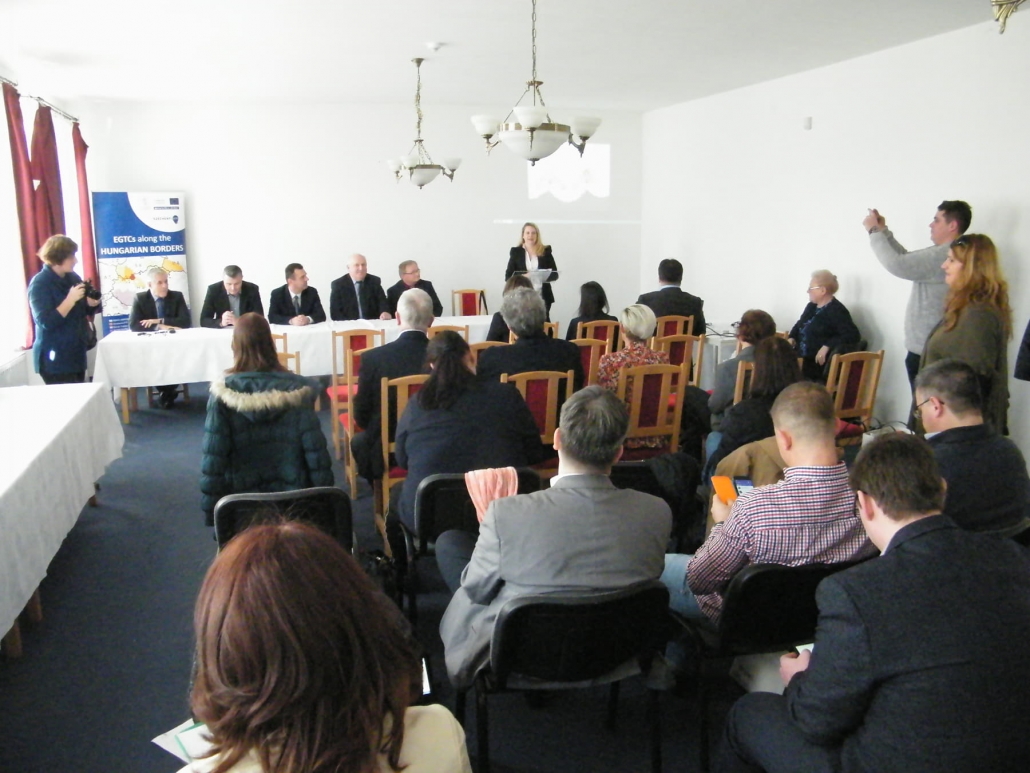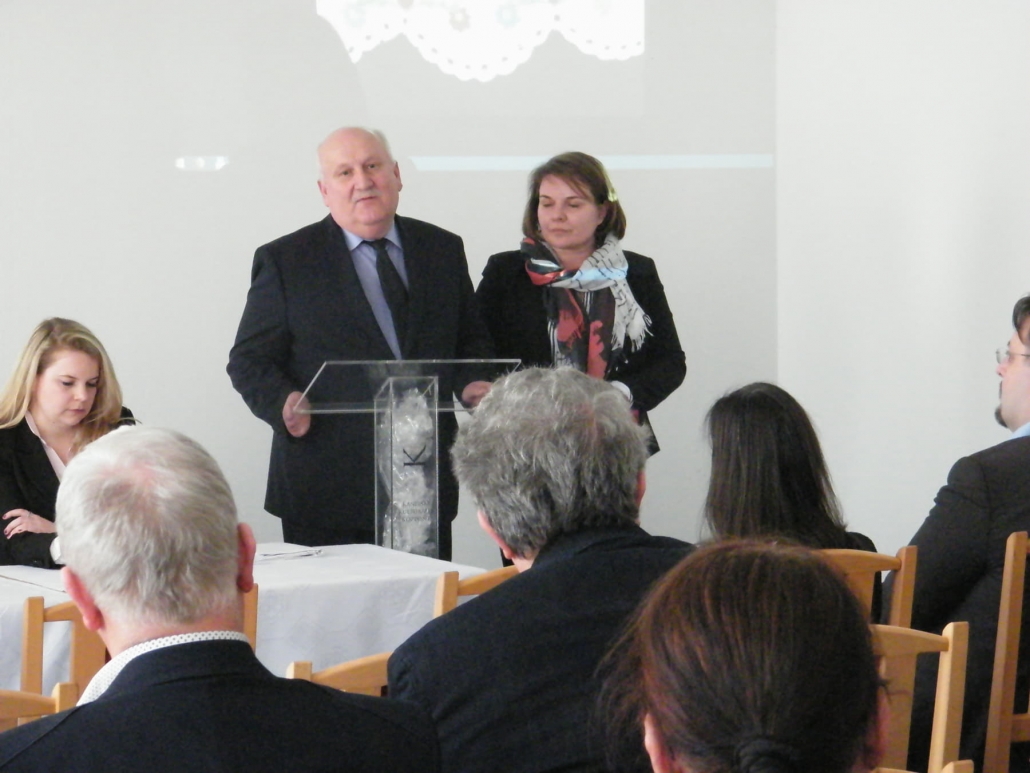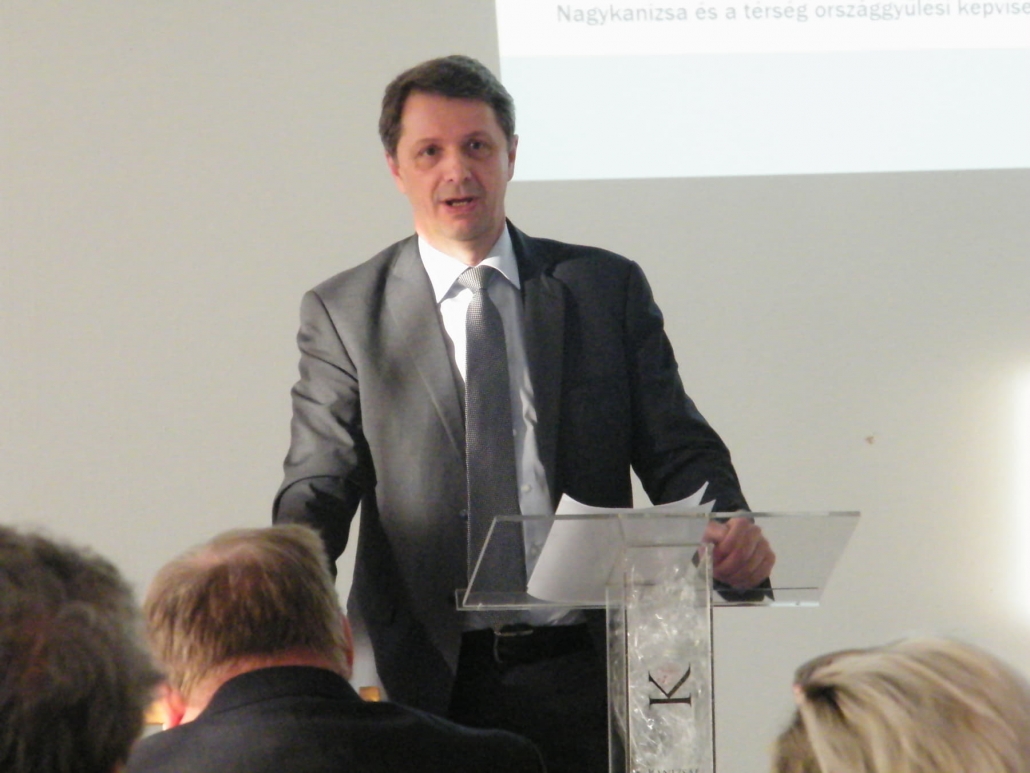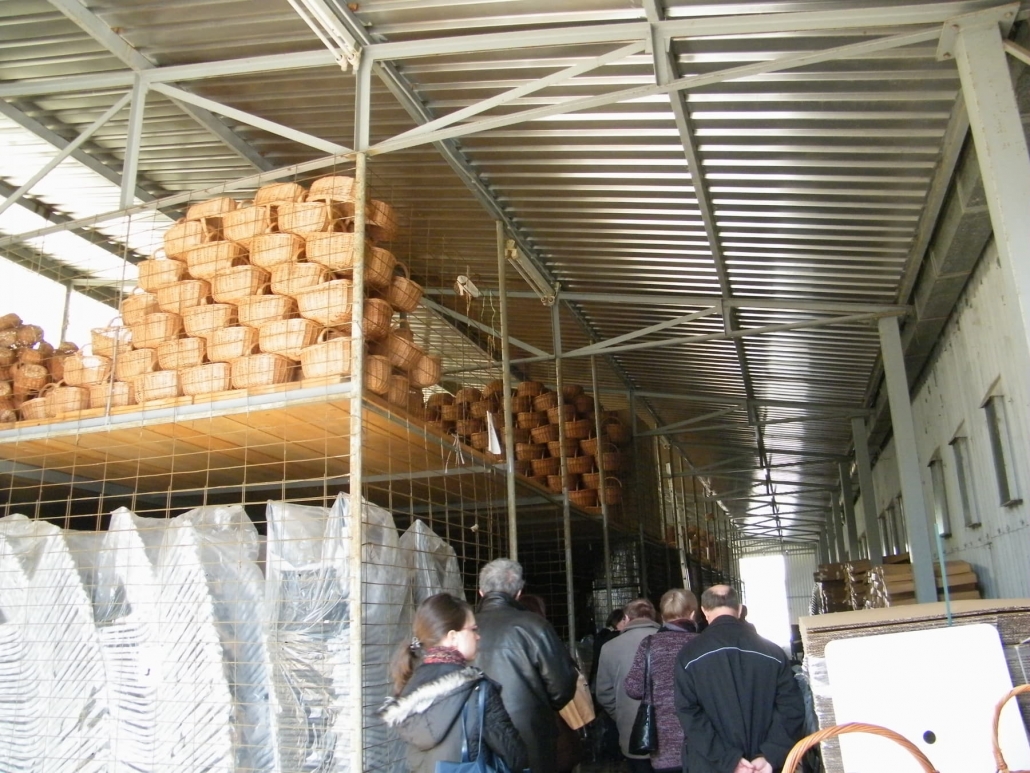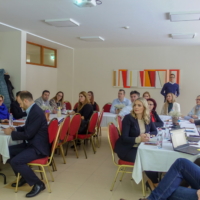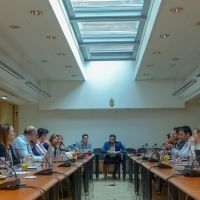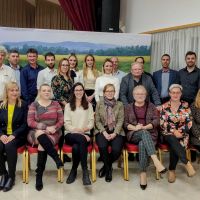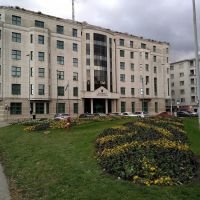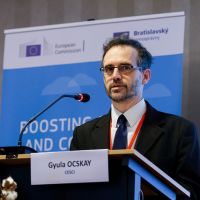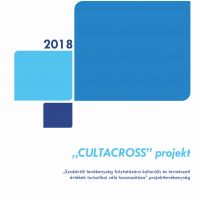The actual EGTC workshop was organized by the Mura Region EGTC, in its headquarters, the Fedák Country house, in Tótszerdahely, on 8-9 March 2018.
Participants were welcomed by Matija Posavec, lieutenant of the Murska County; Dr. Attila Pál, chairman of the Zala County Assembly; János Gugán, president of the Self-Government of Croatia in Hungary; Mario Moharic, president of the Mura Region EGTC, and István Tislér, the Director of the Mura Region EGTC.
Dr. Márton Szűcs, head of the Interreg V-A Hungary-Croatia Co-operation Programme Joint Secretariat, talked about the programme, within the framework of which60.8 million € ERDF funds are available in 2014-2020 period. On the Croatian side, not only the counties located straight along the border are eligible for funding. Besides tourism projects (e.g. bicycle paths), strategic ones can also be implemented (e.g. bridge construction, mine clearance, support for SMEs) as well. The second call of the program is coming soon, within the framework of which the available budget exceeds 20.8 million €.
Nóra Frank, programme coordinator of Tempus Public Foundation, presented the Europe for Citizens Programme and the current call for applications. The main aim of the programme is to get acquainted with each other and the EU, but it also draws attention to the importance of active citizenship. The Tempus Public Foundation assists the applicants as a national contact point.
Gyula Ocskay, the Secretary General of CESCI, highlighted the most important elements of the ‘Boosting Growth and Cohesion in EU Border Regions’ European Union Communication, and gave information about the related initiatives by CESCI.
Péter Cseresnyés, Ministerial Commissioner responsible for the Mura program pointed out that the Mura National Program, which is under preparation, will focus on the development of the southwest Zala area. Within the framework of the government program, tourism and agriculture seem to be key development areas.
László Nyárádi, international rapporteur of the Prime Minister’s Office, spoke about the EU Cohesion Policy after 2020. The Cohesion Policy (CP) is mainly defined by two factors: the Multiannual Financial Framework (MFF) and the legislative package. By 2014-2020, 960 billion € is the total MFF, and 325 billion is the Cohesion Policy. The current programmes are adapted to the EU 2020, but in the next period there will be no such framework strategy. It can be concluded from the 7th cohesion report that climate protection and social policy will be significantly enhanced.
István Tislér, as the director of the Mura Region EGTC, introduced the region’s granted projects on solar energy supply of public buildings, development of water tourism among others, as well as on the construction of the Kotoriba Bridge.
Tünde Tímea Kres, project manager of the Mura Region EGTC shared her experiences on the project proposals for the development of the Mura region. In addition, she announced that a newsletter has been launched and the organization’s website is regularly updated.
Patrícia Abaffy (Ministry of Foreign Affairs and Trade of Hungary) reported on issues concerning the annual EGTC grants. It is important to note that there will be no joint call for proposals in 2018, but the available amount will be allocated based on the individual requests.
The next workshop expected to be in June 2018.
